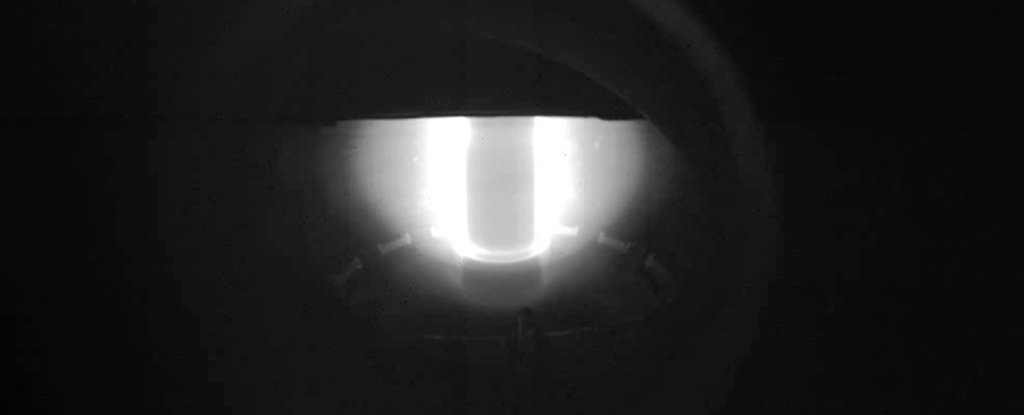After a long, seven-year development, an experimental fusion reactor in the UK has been successfully powered on for the time, achieving 'first plasma': confirmation that all its components can work together to heat hydrogen gas into the plasma phase of matter.
This transition – achieved last week by a machine called MAST Upgrade in Culham, Oxfordshire – is the fundamental ingredient of a working nuclear fusion reactor, a dream scientists have been trying to realise for decades.
In nuclear fusion, the nuclei of two or more lighter elements fuse into a heavier nucleus, and release energy. This phenomenon is what goes on in the heart of the Sun, and if we can recreate and maintain the same reactions on Earth at sufficient scale, we stand to reap the rewards of clean, virtually limitless, low-carbon energy.
Not that we're there quite yet, but the successful completion and first test run of MAST Upgrade is a significant milestone in the journey. The original MAST (Mega Amp Spherical Tokamak) facility ran from 1999 to 2013, and its successor has been in the works ever since, so it's an important proof of concept.

 www.sciencealert.com
www.sciencealert.com
This transition – achieved last week by a machine called MAST Upgrade in Culham, Oxfordshire – is the fundamental ingredient of a working nuclear fusion reactor, a dream scientists have been trying to realise for decades.
In nuclear fusion, the nuclei of two or more lighter elements fuse into a heavier nucleus, and release energy. This phenomenon is what goes on in the heart of the Sun, and if we can recreate and maintain the same reactions on Earth at sufficient scale, we stand to reap the rewards of clean, virtually limitless, low-carbon energy.
Not that we're there quite yet, but the successful completion and first test run of MAST Upgrade is a significant milestone in the journey. The original MAST (Mega Amp Spherical Tokamak) facility ran from 1999 to 2013, and its successor has been in the works ever since, so it's an important proof of concept.

A Huge Fusion Experiment in The UK Just Achieved The Much Anticipated 'First Plasma'
After a long, seven-year development, an experimental fusion reactor in the UK has been successfully powered on for the time, achieving 'first plasma': confirmation that all its components can work together to heat hydrogen gas into the plasma phase of matter.

